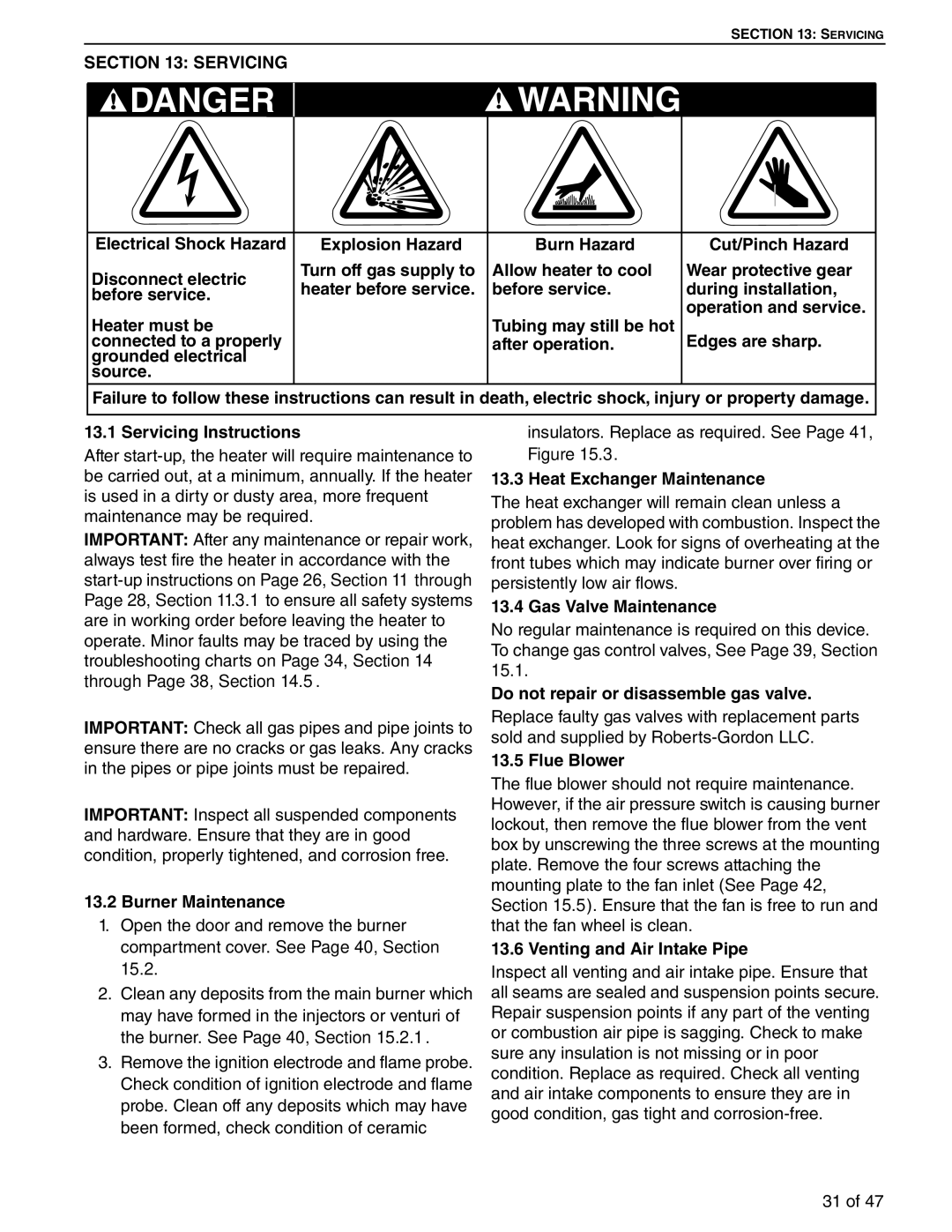125, 100, 75 specifications
Roberts Gordon is a recognized leader in the manufacturing of innovative heating solutions, with a diverse product line including the 100, 125, 75, 45, and 60 series of radiant tube heaters. Each model is designed to meet specific heating needs while emphasizing efficiency, durability, and performance.The Robert Gordon 100 series is known for its high efficiency and ability to provide consistent warmth in large industrial spaces. It features advanced infrared technology, which heats objects and surfaces directly, resulting in quicker temperature increases and enhanced comfort. This model is equipped with modulating burners that allow for optimal gas usage and can be easily integrated into existing systems.
The 125 series builds upon the efficiency of the 100 model while offering increased heating capacity. Its robust design ensures it can handle the demands of larger applications, such as warehouses and manufacturing facilities. With enhanced control options, users can tailor the heating output to match specific operational requirements, reducing energy consumption.
The 75 series offers a compact solution for smaller commercial spaces, providing a reliable heating source without taking up excessive floor space. Its lightweight design facilitates easy installation, while the modular approach allows for scalability to meet changing heating demands. This series emphasizes sustainability, utilizing advanced combustion technologies that minimize emissions.
For smaller applications, the 45 series stands out with its efficient heating capabilities in confined spaces. This series features simple, yet effective controls, enabling straightforward operation. The robust construction ensures durability, making it well-suited for different commercial environments, including retail settings or small workshops.
Finally, the 60 series combines the best features of the range with energy conservation as a primary focus. Its innovative design incorporates smart technology to monitor energy usage and optimize performance. The heaters are equipped with the latest in safety features, providing peace of mind for users.
Overall, Roberts Gordon’s radiant tube heaters showcase a commitment to high-quality heating solutions that cater to a variety of industrial and commercial applications. With energy efficiency, superior durability, and advanced heating technologies as core characteristics, Roberts Gordon remains a trusted choice for businesses looking to enhance their heating performance.

